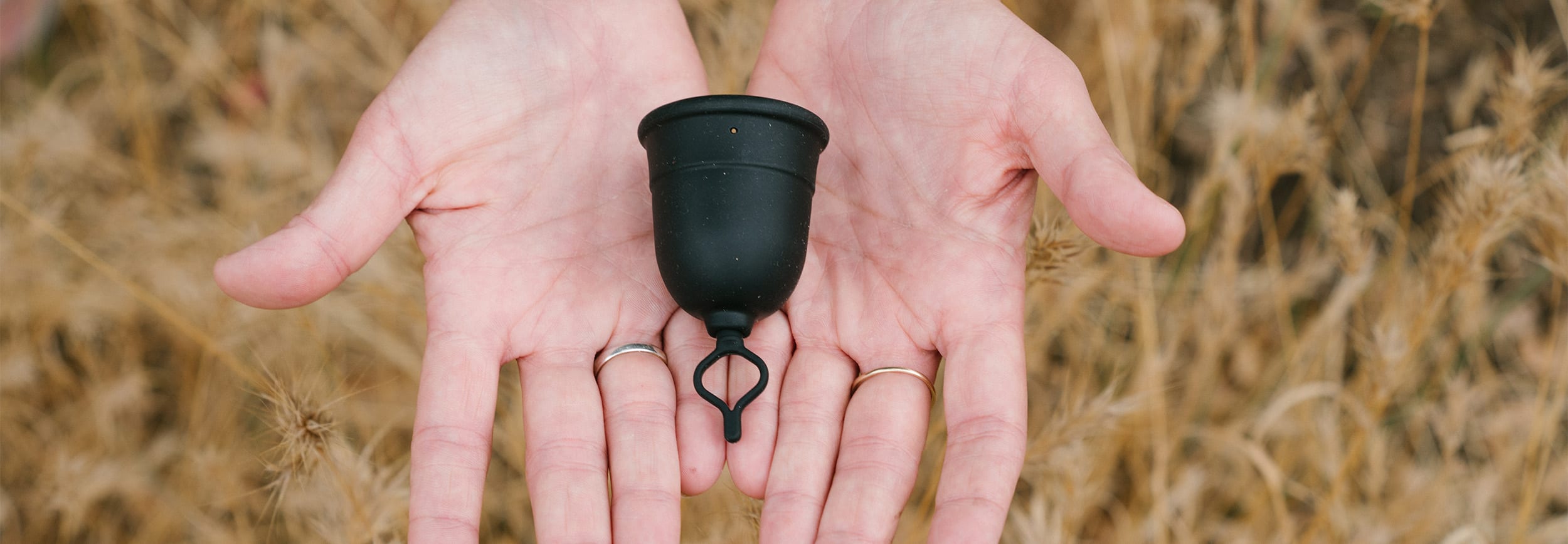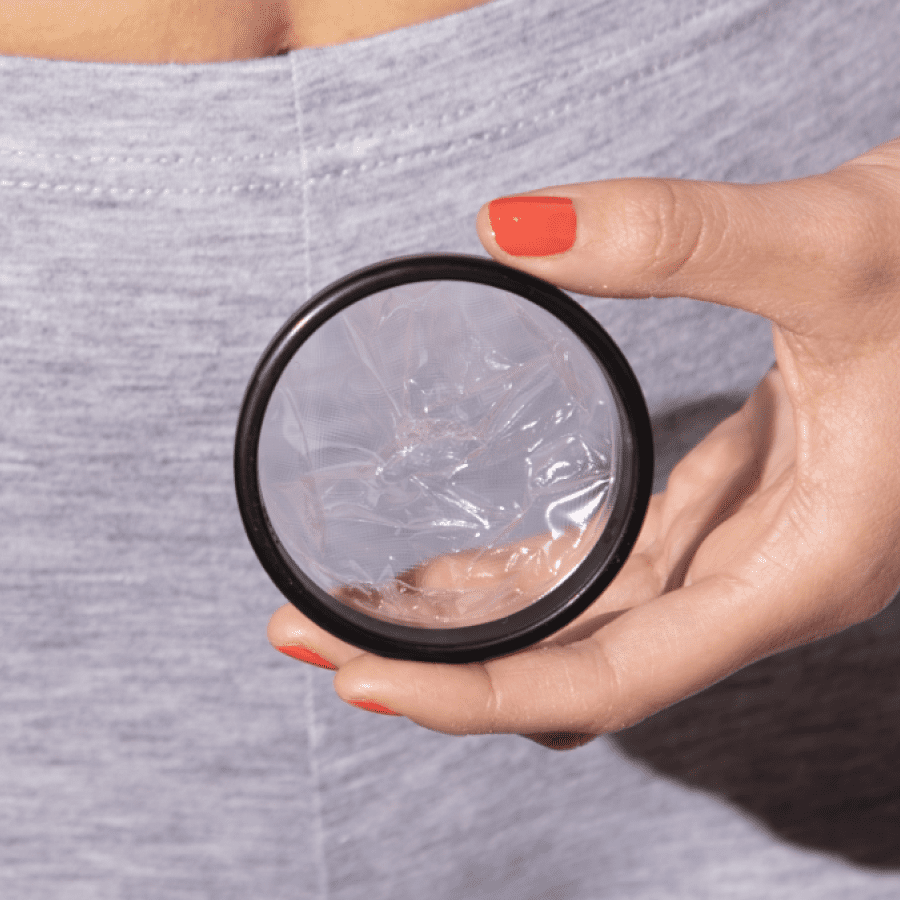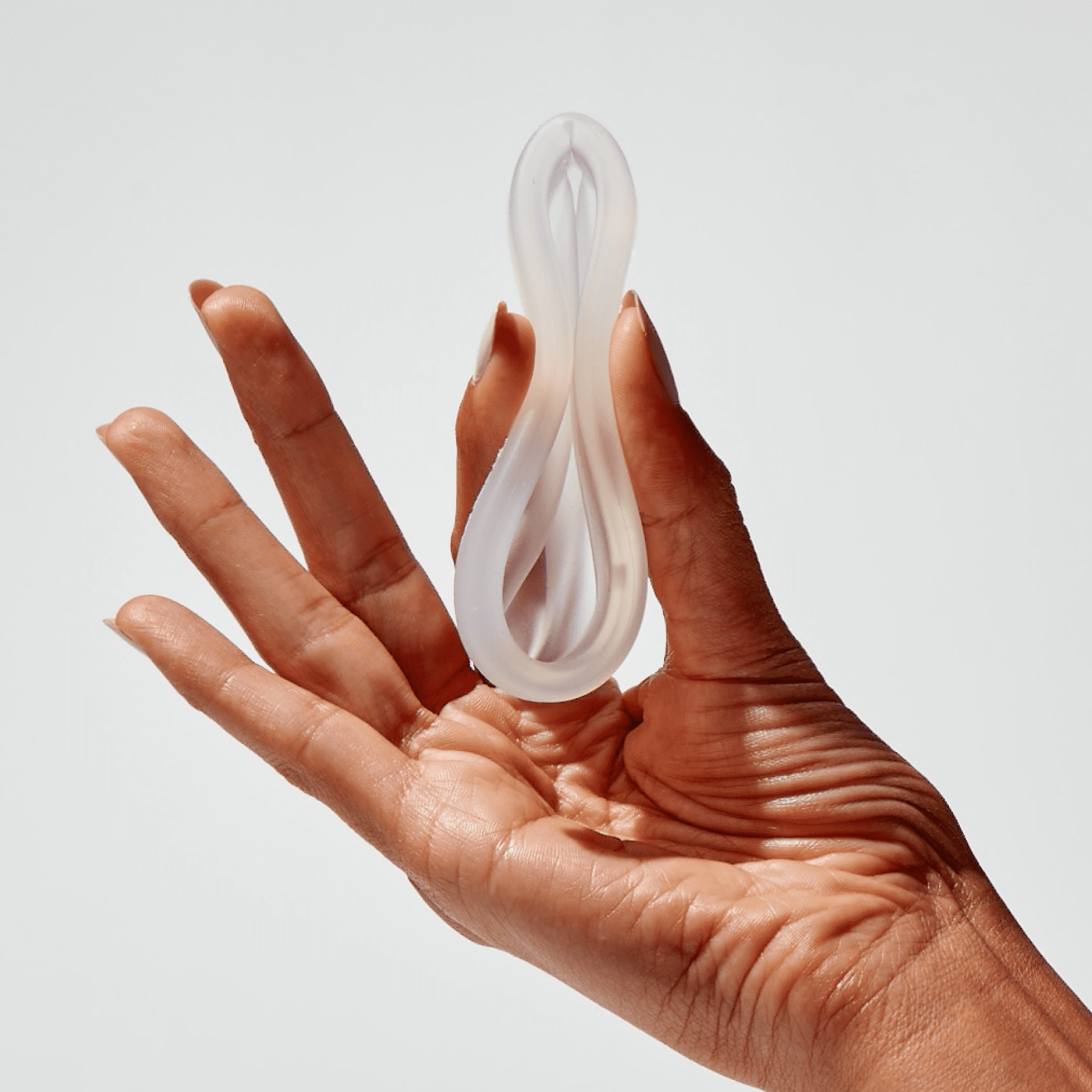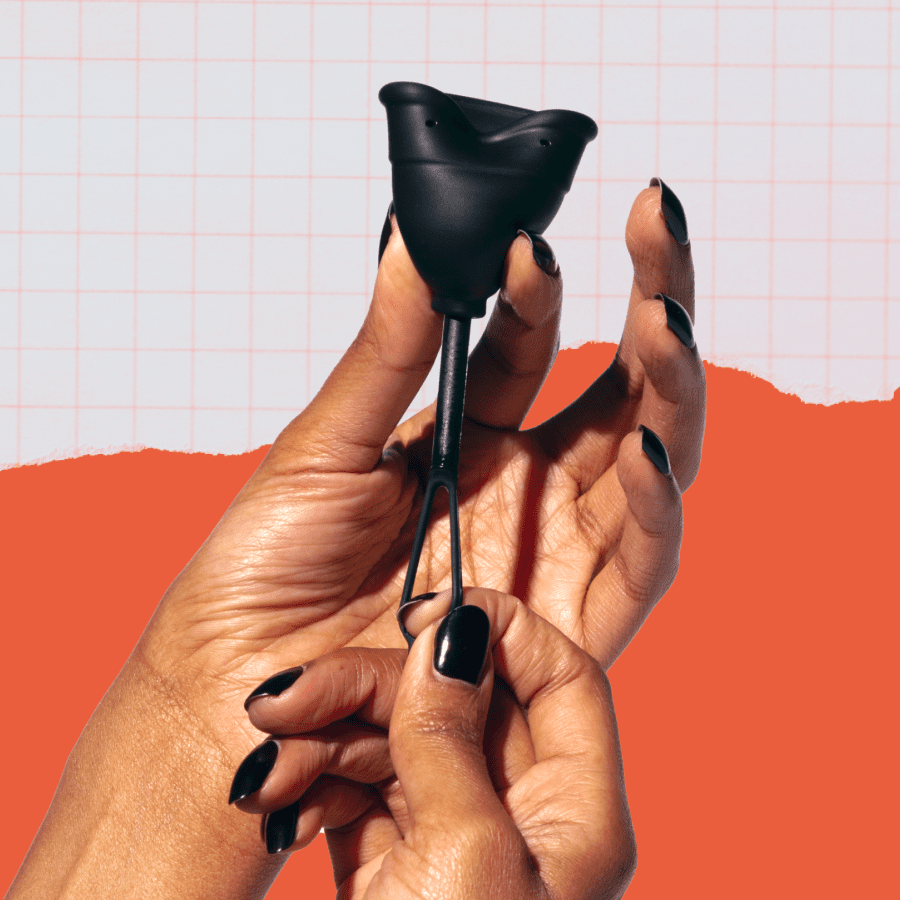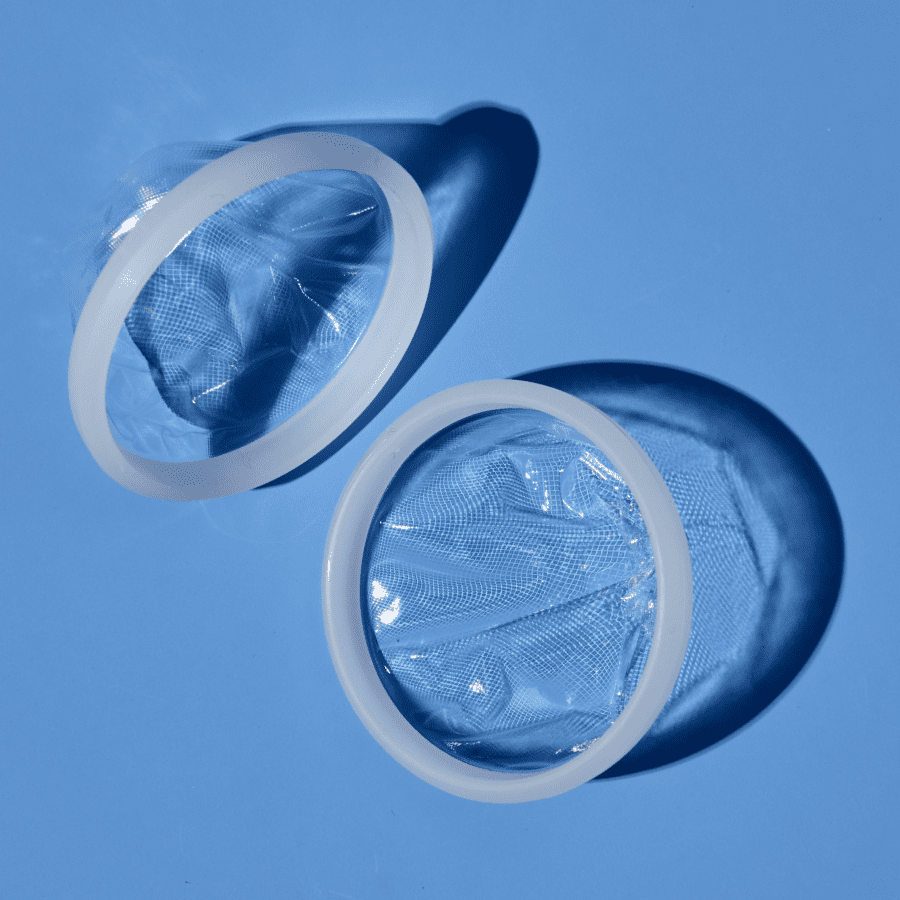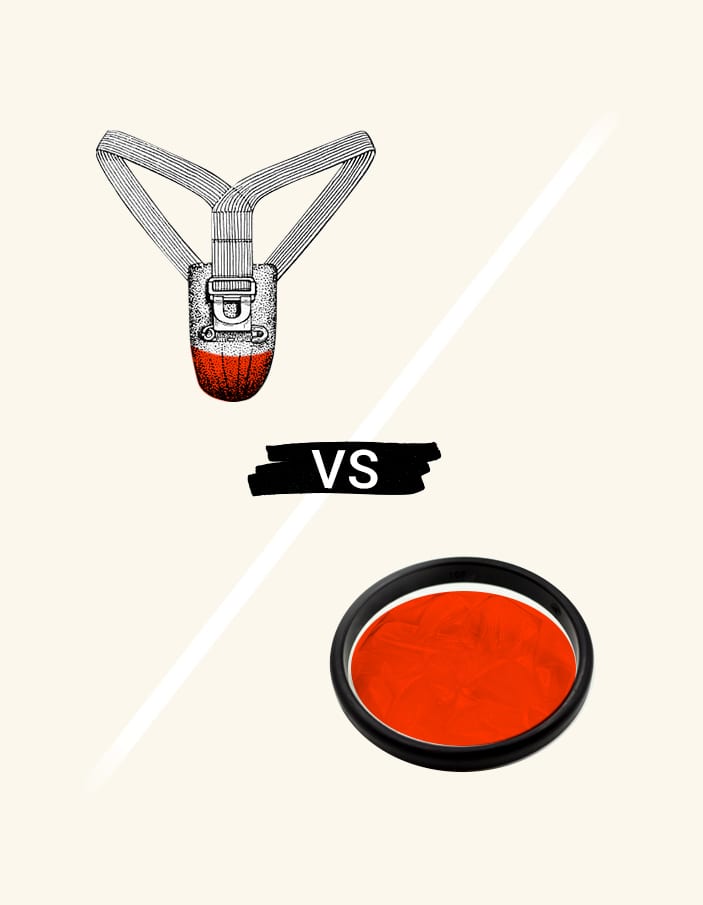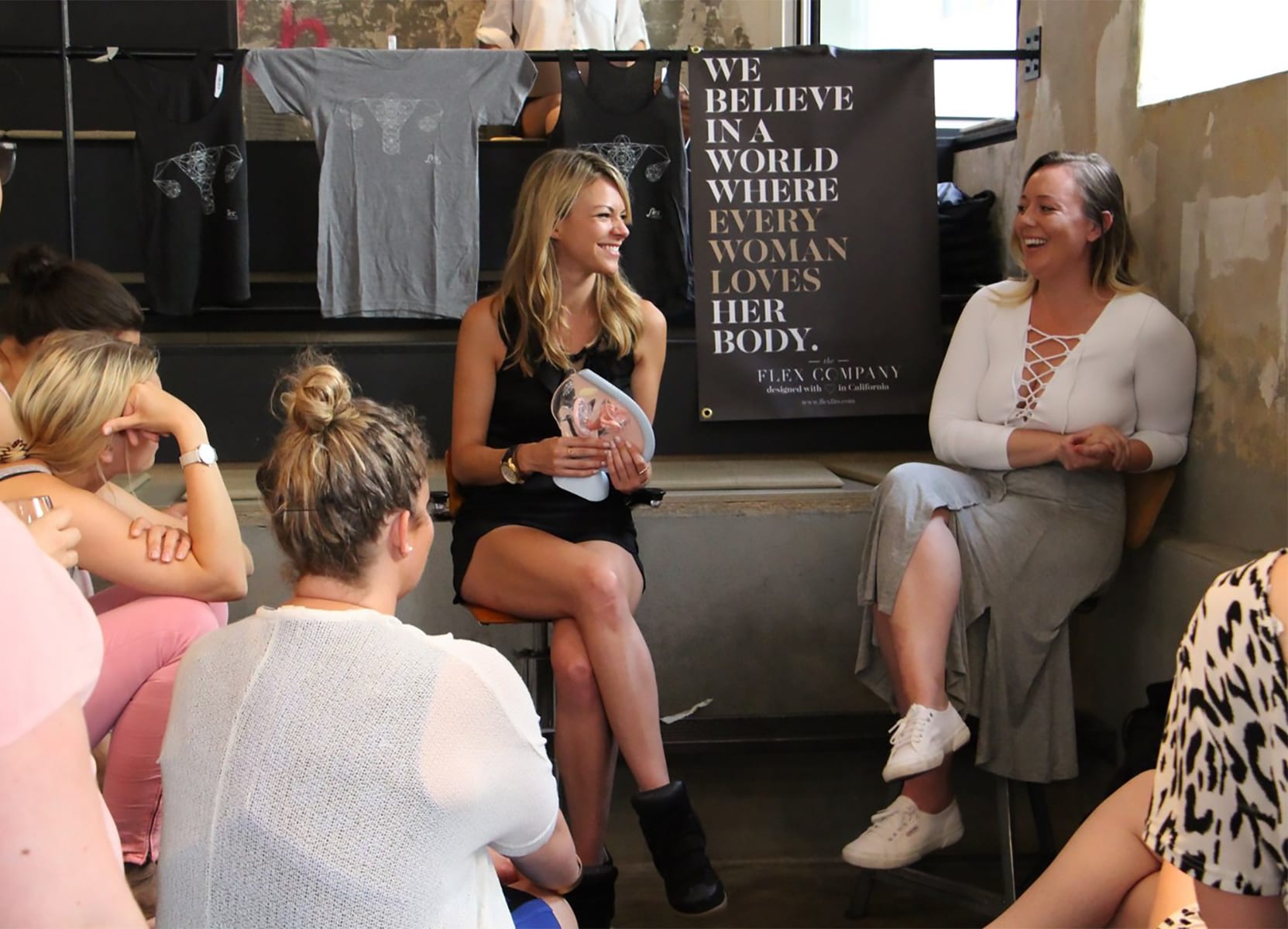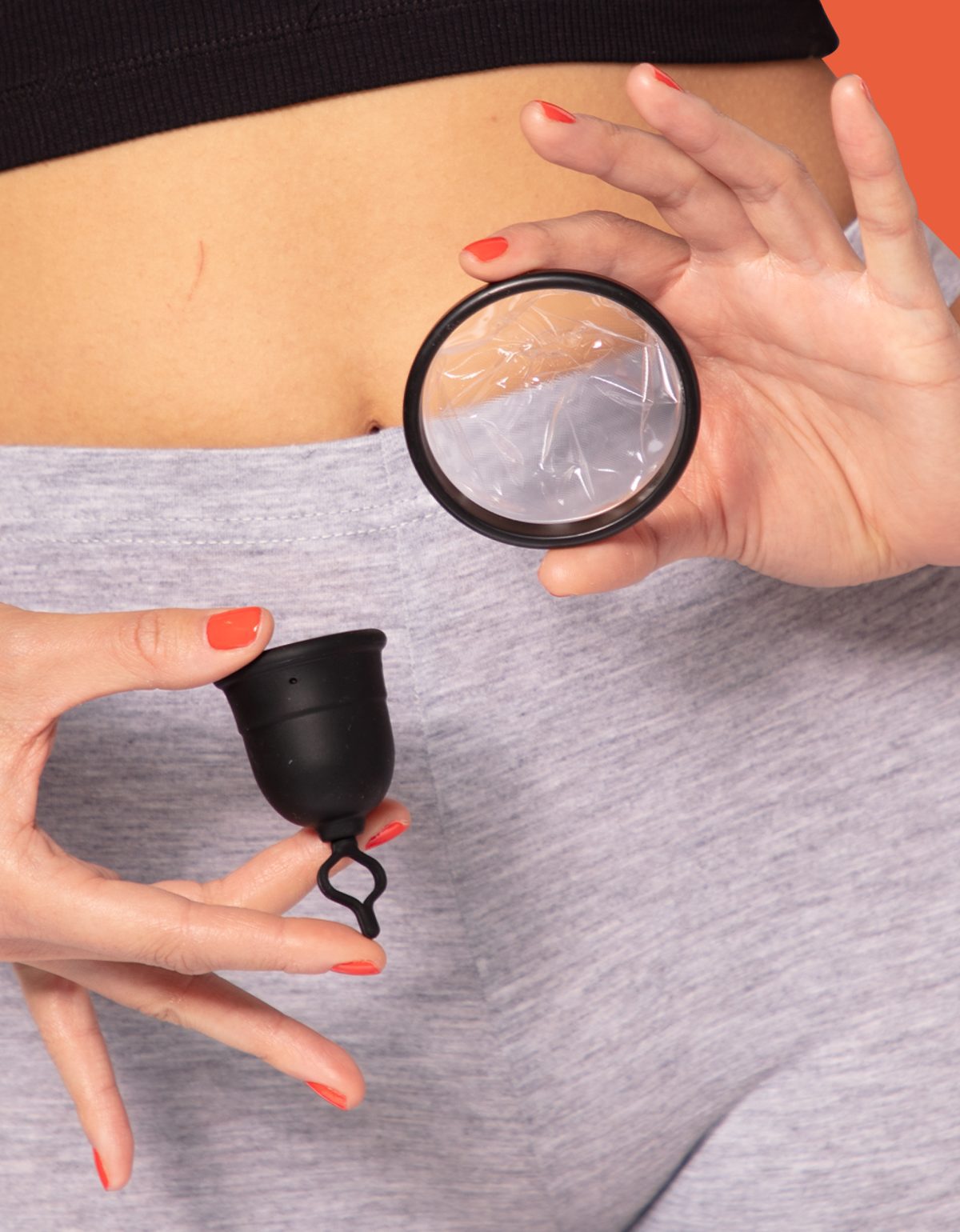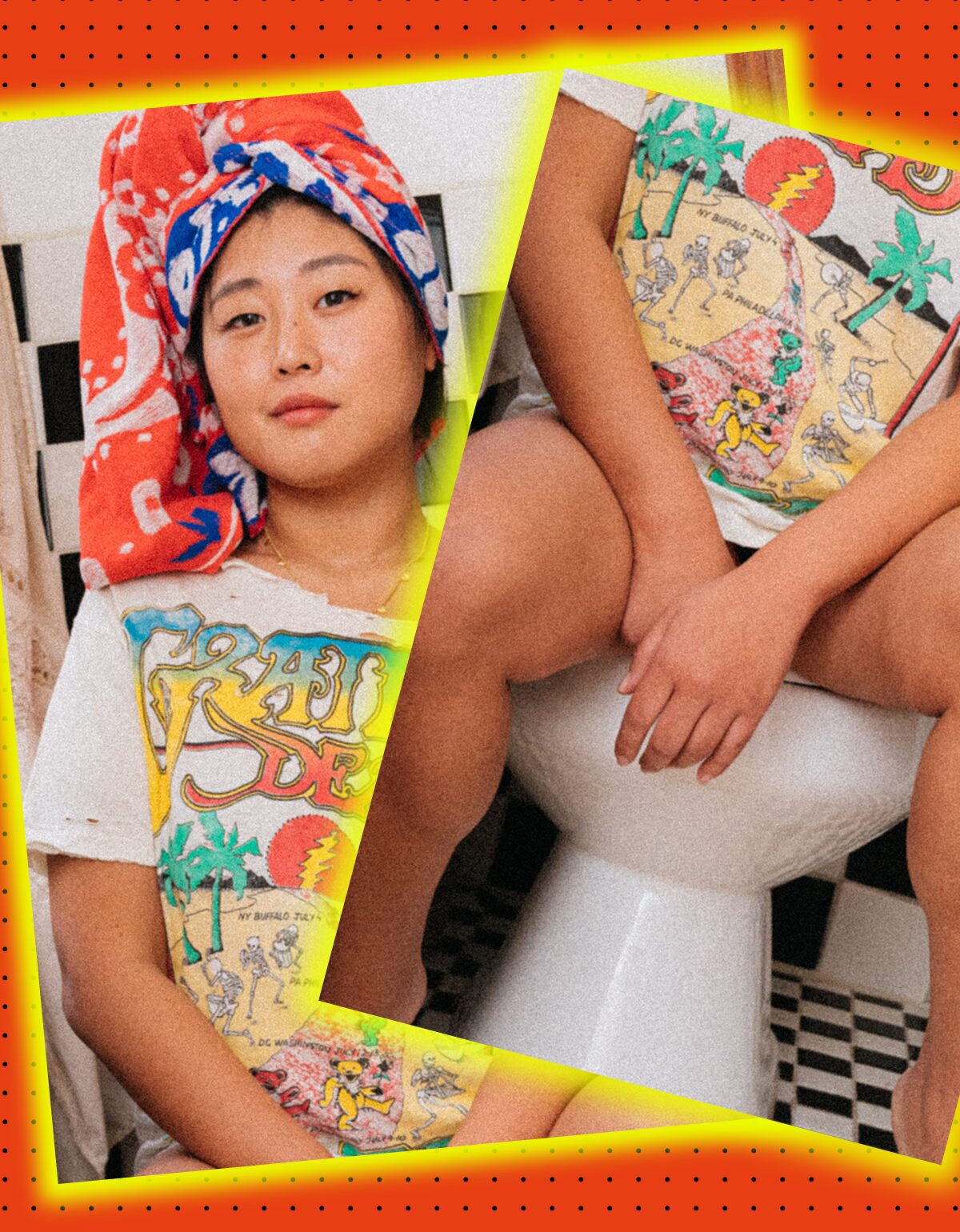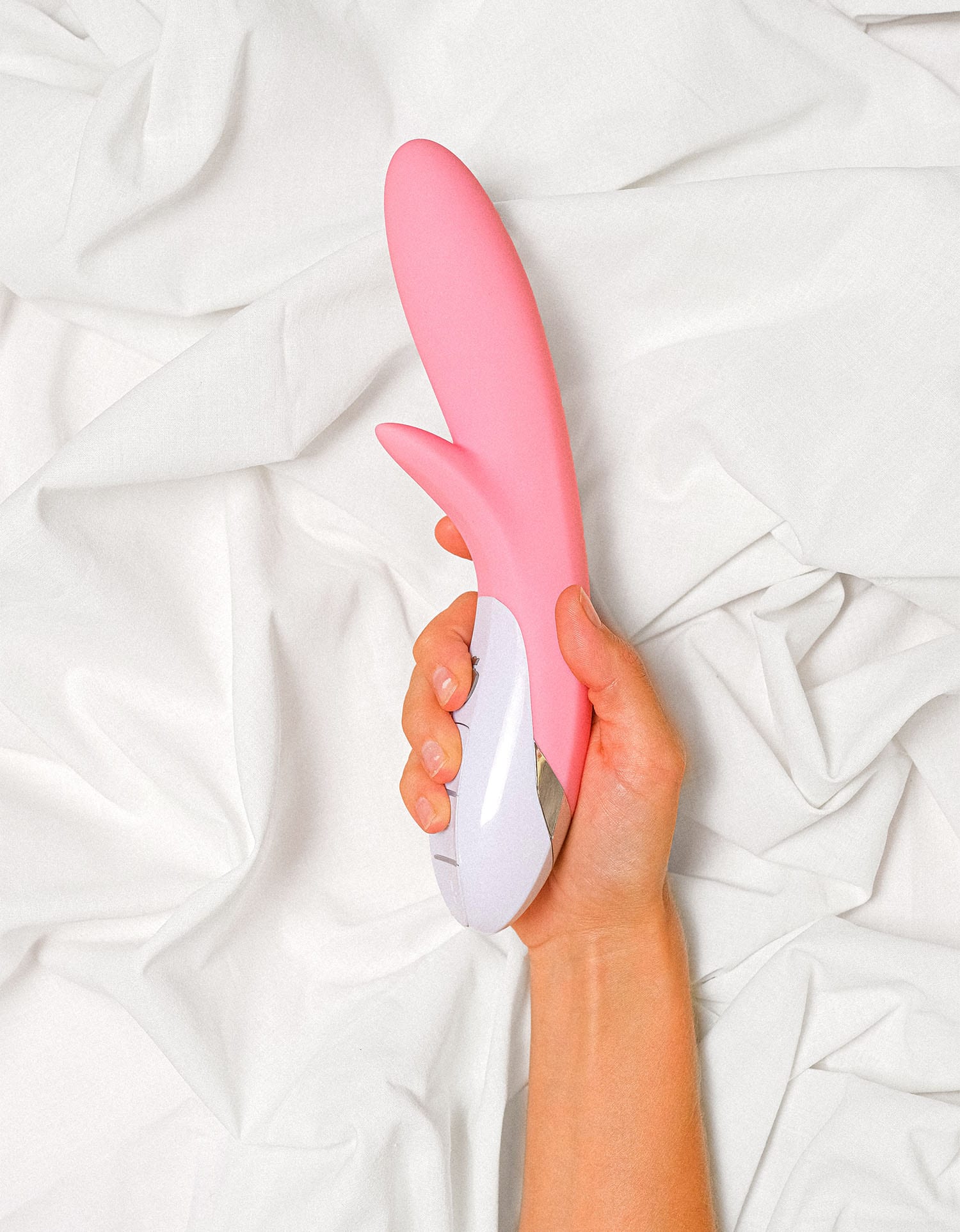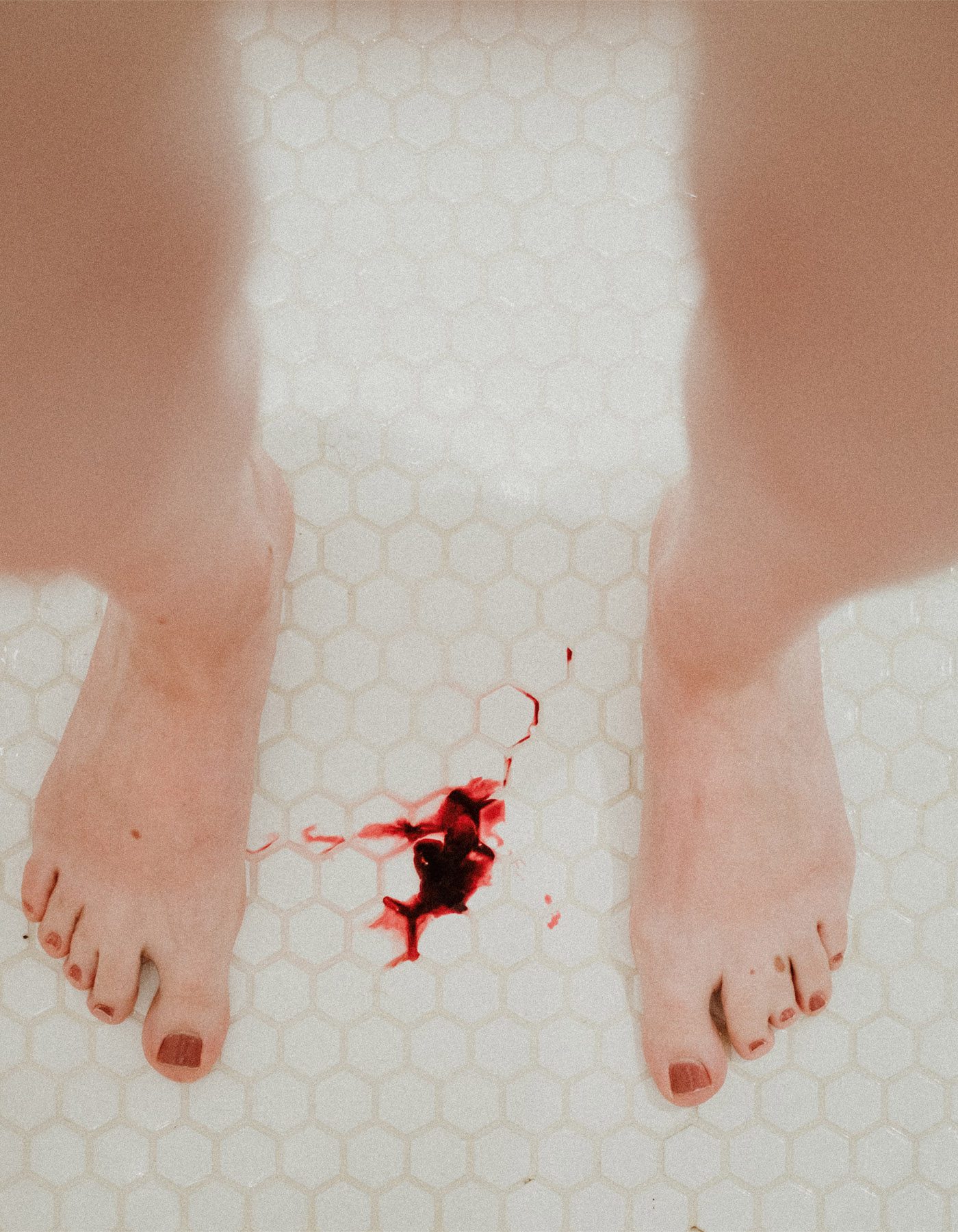The best period products for every flow: 2024 explainer
The highlights
- Your body is always changing! Likewise, your period’s characteristics tend to change with age, stress levels, physical activity, and birth control use. So, it makes sense that you might also need to switch up your period products – with different products working better on different days of your period, or from one cycle to the next.
- Your day-to-day activities and how comfortable you are with your body are just as important as the volume of your period flow when thinking about which products to use.
- Bleeding too much or experiencing extreme pain during your period are both good reasons to check in with your healthcare provider. Menstrual discs and period cups allow you to visualize your flow a bit better so you can take note of your period volume, color, consistency, and clots – all signs of how your body is doing.
The full read
Finding the best period products is all about how they feel in your body and making sure they support your needs – which can change with age and even cycle to cycle.
The first thing that comes to mind for most is whether you have heavy or light periods, but you should also consider your personal preferences (e.g. does inserting something inside your vagina make you tense up?) and daily schedule (e.g. are you running from work straight to that HIIT class?).
While options for period management were pretty scarce even just a few years ago, today, there are dozens of different period products on the market.
Let’s take a look at the different types of bleeding that can happen throughout the menstrual cycle and what your options are for supporting your body’s flow during these times.
We’ll walk you through the best products for:
- Spotting
- Light & medium period flow
- Heavy period flow
- Period clots
- Painful periods
Best period products for spotting
Spotting, or light vaginal bleeding that takes place outside of your period, can occur at different times for a variety of reasons. These may include normal hormonal variations that occur throughout your cycle, going on or off hormonal birth control, pregnancy-related factors, and age-related factors (i.e approaching menopause or going through puberty).
While not everybody does, it can be normal to spot before and after your period, and/or during ovulation.
Keep in mind that spotting may also occur when your cervix is inflamed. If you’re noticing abnormal spotting or experiencing any pelvic pain or pain during sex, check with your provider to rule out any underlying conditions.
Spotting can be annoying, especially when it shows up unannounced and is just enough to ruin your favorite pair of underwear. You might be able to predict normal, cycle-related spotting by tracking your period – this way, you can prepare yourself with the right product.
These are our favorite products for spotting:
- Liners
- Light pads
- Period underwear
- Menstrual discs
Dealing with spotting? A few other things to note:
Can you use tampons for spotting? It’s best not to, since irritation can occur when there isn’t enough fluid for the cotton to absorb. This makes removal painful and may leave your vagina more susceptible to infection.
If your spotting is postpartum or pregnancy-related, you may want and/or need to avoid inserting anything inside you as you heal.
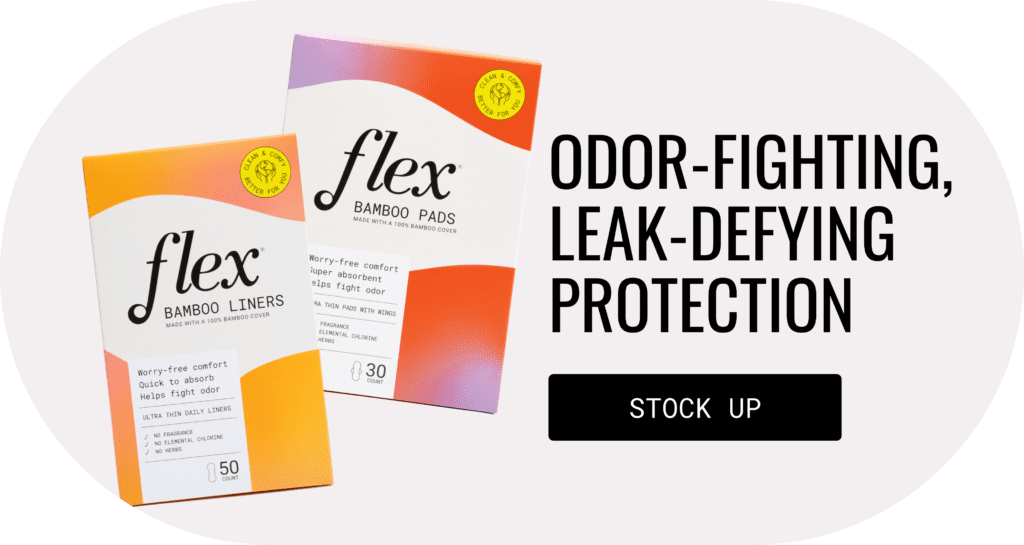

Best period products for light & medium flow
Everyone’s period is different. To top that off, most of us even experience different flows at different parts of our period (like on day three, when your period lightens up and you excitedly think it’s on its way out… only to have it come back even heavier than when it started on day four).
Keeping these common ups and downs in mind, we recommend being prepared with different products to support your changing needs. In other words, ask yourself, “which ‘fit is my vagina feeling today?” If your period is on the medium-to-lighter side, or if you just want to be prepared for those last couple days of lighter flow, consider some of these products.
Our favorite products for light & medium flows:
- Reusable or disposable pads
- Tampons (preferably organic)
- Period cups
- Menstrual discs
- Period underwear
- Free bleeding
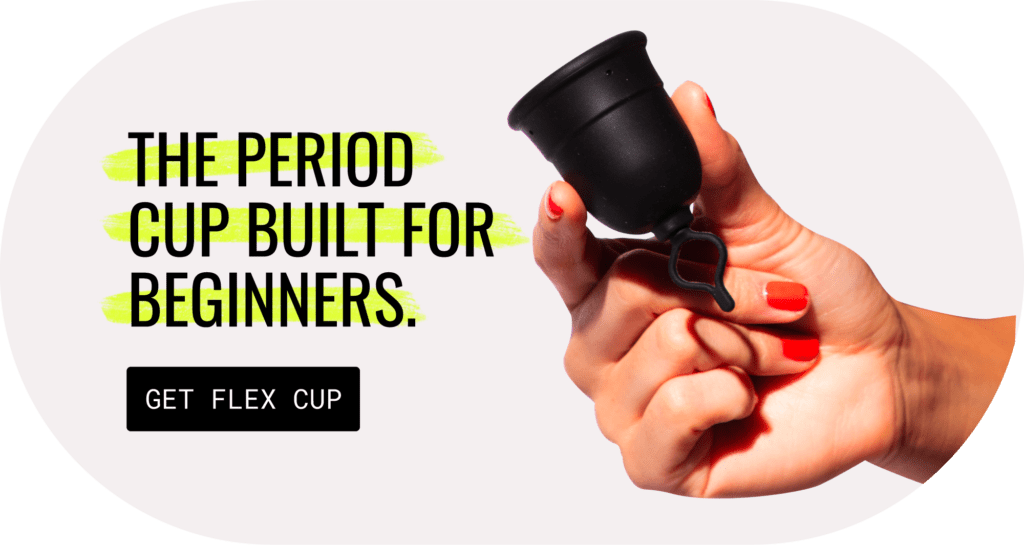

A few other considerations for light & medium flows:
A “light” pad or tampon can typically hold 3 mL of blood when fully soaked, whereas a medium or “regular” pad/ tampon can hold up to 4 mL when fully soaked – so there’s not as much of a difference between the two as you might have thought.
If your flow is on the lighter side, we recommend menstrual discs as a more comfortable alternative to tampons: They easily glide into (and out of!) your vagina regardless of the amount of lubrication present.
For a medium flow, both menstrual discs and cups are a great, eco-friendly choice. Prefer the long-term relationship of a menstrual cup? Start with the Slim Fit Flex Cup if you’re on the lighter side of medium.
If you choose pads or tampons, be sure to change your product every 2-4 hours, even if you aren’t soaking through them, in order to avoid disrupting your vaginal pH balance or setting the stage for infection.
If you go with period underwear, try to avoid wearing the same pair for longer than 6-8 hours to minimize odor and avoid disturbing your delicate vaginal ecosystem.
If you struggle with frequent vaginal infections (like BV or yeast infections), you may have better luck with menstrual discs or a period cup (which are biologically inert) than with tampons or pads.
Why? Pads don’t breathe well and can trap sweat and bacteria in and around the vulva. And tampons, since they’re made with cotton, are not biologically inert – meaning they tend to disrupt your vaginal flora and may promote bacterial growth.
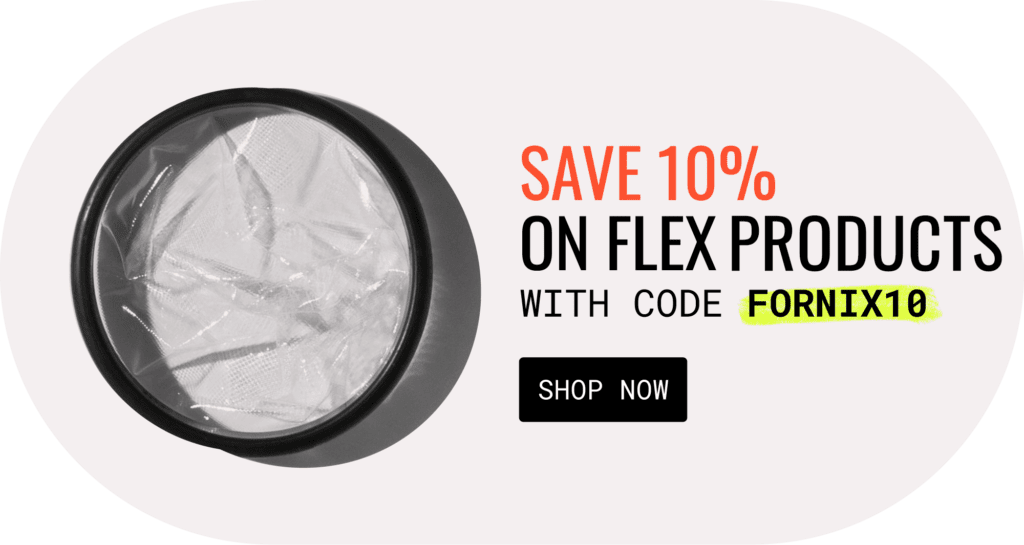

Best period products for heavy flow
Pads and tampons designated as “heavy” can typically hold around 9-12 mL of fluid. Then there are “super pads and tampons can often hold around 12-15 mL. Every brand is a bit different, though, so read the label for guidance.
Our favorite products for heavy flows:
- Menstrual cups
- Menstrual discs
- Period underwear (for backup)
A few other considerations for those with a heavy flow:
Menstrual cups can hold up to the equivalent of three super tampons and be worn up to 12 hours, so for those who have a heavy period, you may have found your new BFF. An added bonus of using cups to manage your flow is that you could end up saving up to $300 a year!
Menstrual discs are also a great choice for heavy bleeders who prefer a longer-wear, disposable option. Discs can hold up to twelve teaspoons of fluid (aka 60-70 mL or five super tampons worth), AND they can self-empty when you pee which means you’ll never have to walk around with a full disc. Discs can also be worn for up to 12 hours.
Note: Some heavy bleeders will notice what looks like leakage from their menstrual disc when using the restroom (usually you’ll see some blood in the toilet). This is totally normal! It happens because your menstrual disc gets slightly pushed out of place when you push down on your pelvic floor muscles to pee or poop, dumping some blood out and partially emptying the disc – which is kinda convenient, because you’ll be able to last longer without changing products. Just remember to tuck your disc back behind your pubic bone when you’re done.
If you want to work out, a menstrual cup or disc is a great option, as it won’t fall out of place and can be kept inside for long periods of time. Lotus pose in a soaked period pad isn’t our fave thing, either.
Menstrual cups and discs are also a lifesaver for those who soak through tampons and pads throughout the night. They both can be worn for up to twelve hours. Plus, they’re helpful for keeping period clots, which are common for people with a heavier flow, neatly contained rather than noticeably damp in your underwear.


If you have a long day out and about and you don’t think you’ll have access to a private bathroom with a sink, you may prefer to avoid using a cup and opt for disposable options instead (or just arm yourself with a pack of Flex Wipes and skip the walk to the sink altogether).
Another pro tip: Always have backup. This is likely a no brainer for those who are no stranger to heavy flows, but consider bringing different kinds of backup with you, like tampons of different sizes as well as menstrual discs, so you can choose what makes the most sense in the moment.
If you opt for period underwear, it is important to know how much fluid it can hold. If your flow is particularly heavy, you may want to use another period product in combination (consider your underwear more like stain management).
If you’re soaking through more than sixteen regular tampons or pads per cycle, producing more than 80 mL of blood per cycle, or if your period lasts for more than 8 days, this is considered menorrhagia – a.k.a. an excessively heavy flow. If you’re experiencing menorrhagia, it’s a good idea to check in with your healthcare provider.
When should you go to the hospital for heavy menstrual bleeding? If you ever soak through two pads in one hour (like, top to bottom soaked), and/or are feeling dizzy, faint, confused, or are passing out, that is not normal – and a sign that an ER visit is warranted.
Best period products for painful periods (Dysmenorrhea)
There are lots of reasons you can experience period pain, but debilitating pain is not considered normal. If your period pain is making you curl up in bed all day, and/or is affecting your work, relationships, or mental health, it’s time to reach out and get some support. Talk to your healthcare provider ASAP to rule out any underlying conditions.
If you have endometriosis or another diagnosed condition that means painful periods are a given, picking a period product can be difficult. Oftentimes, inserting something into your vagina only exacerbates the pain – in which case tampons, cups, or discs might not be the best choice.
Try switching to period underwear, traditional pads, or reusable cloth pads if this is you. However: If you’re able to tolerate insertion, some folks report that menstrual discs are preferable to tampons since they sit in the vaginal fornix – the widest part of the vagina. Menstrual discs are also made of flexible materials that move with uterine contractions rather than pushing back against them (like tampons).
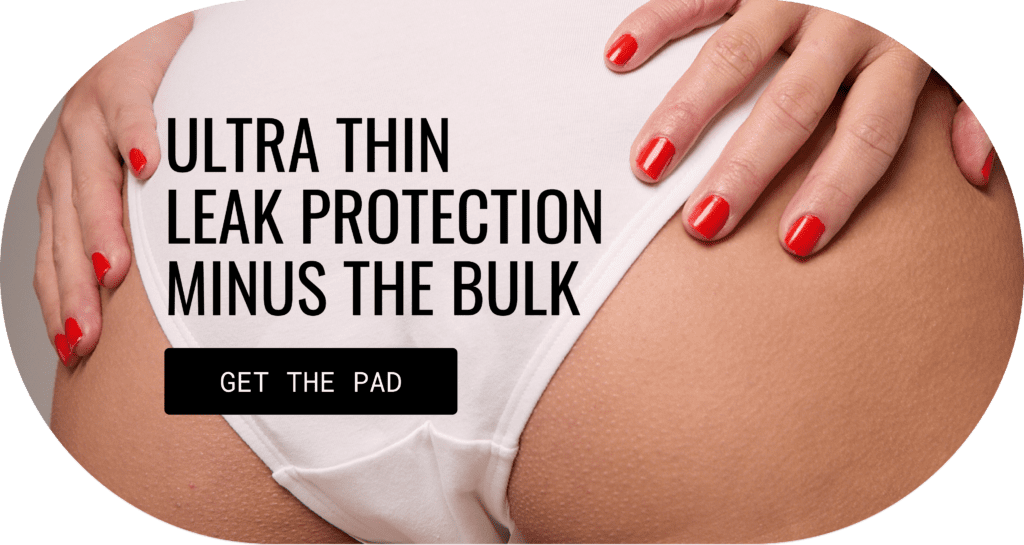

Another dysmenorrhea pro tip? Heating pads can be a lifesaver. Place the pad on your lower belly and snuggle with it in bed.
Lastly, if you’ve never tried a CBD suppository, now might be the time. CBD is a cannabinoid that has both anti-inflammatory and antispasmodic properties. By inserting the CBD topically instead of taking it orally, it can work its magic more quickly and directly. It may also make you feel less stressed which helps with, well, everything.
Our favorite products for dealing with painful periods:
- Reusable pads
- Period underwear
- Menstrual discs
What else to consider when choosing a period product
Sometimes your decision to choose one period product over another will depend on more than just your flow. Here are some other considerations to keep in mind.
- Am I comfortable (physically and emotionally) inserting something inside my vagina? This can be more difficult for those who have experienced any form of trauma.
- Do I want an eco-friendly option or a disposable one?
- Will I have access to a restroom where I can change my period product throughout the day? Will I have access to clean water to wash my menstrual cup?
- Am I going to be in a place where my risk for infection is higher, so inserting something multiple times a day increases my risk of infection?
- Am I working out today?
- How do I feel about sitting in my own fluids (e.g in a pad or period underwear)?
The best way to take care of your period is to listen to your body. Even with an understanding of your flow and all the right tools in hand, sometimes, the product isn’t the issue at all — your body is simply asking you to slow down while your uterus is hard at work.
The more you are in tune with and aware of your unique body, the better you’ll understand what products make the most sense for you – and the less uncomfortable your period will be.
This article is informational only and is not offered as medical advice, nor does it substitute for a consultation with your physician. If you have any gynecological/medical concerns or conditions, please consult your physician.
© 2024 The Flex Company. All Rights Reserved.
